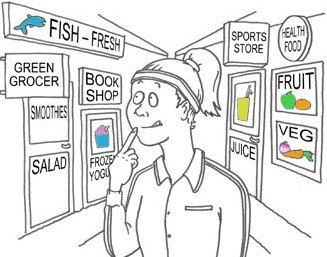 Tess Langfield has won a 2019 ‘Health and Behavior International Collaborative Award’ to conduct a psychophysiological experiment in Sydney, Australia.
Tess Langfield has won a 2019 ‘Health and Behavior International Collaborative Award’ to conduct a psychophysiological experiment in Sydney, Australia.
The award enabled Tess to travel to Australia to conduct a novel experiment using facial electromyography to measure activity in a specific facial muscle called the orbicularis oris, during sipping from glasses of different shapes. Tess visited Macquarie University, Sydney, to work with Dr Philippe Gilchrist and A/Prof Melissa Norberg on the project, which was conducted in a specialist lab at Macquarie. This project builds on her Ph.D. research, which investigates the impact of glass shape on drinking behaviours for soft drinks.
There were four other winners of the HBIC award in 2019, which was set up to enable researchers to visit an international laboratory or research group under the guidance of an identified international mentor.
To see the full text of the interview with Lucy Lloyd click here.

 How should academic institutions—universities, funders, and journal editors— address academic misconduct of the type now known to have been committed by Brian Wansink, John Dyson professor of marketing at Cornell University? Wansink has had a total of 13 articles retracted as of 10 October 2018, following investigation by Cornell which found “misreporting of research data, problematic statistical techniques, failure to properly document and preserve research results, and inappropriate authorship.”
How should academic institutions—universities, funders, and journal editors— address academic misconduct of the type now known to have been committed by Brian Wansink, John Dyson professor of marketing at Cornell University? Wansink has had a total of 13 articles retracted as of 10 October 2018, following investigation by Cornell which found “misreporting of research data, problematic statistical techniques, failure to properly document and preserve research results, and inappropriate authorship.” announced and much criticised partnership between Public Health England (PHE) and the alcohol industry-funded body, Drinkaware – risk delaying or preventing effective policies to improve population health, say public health scientists Mark Petticrew, Martin McKee and Theresa Marteau in their Lancet Comment, published online on September 20th 2018. The authors say that such partnerships with industry promote voluntary models of harm reduction which are largely ineffective and are likely to benefit the relevant industries rather than improving the health of the nation. They conclude by recommending that PHE should work with the public health community to redefine its relationships with industry.
announced and much criticised partnership between Public Health England (PHE) and the alcohol industry-funded body, Drinkaware – risk delaying or preventing effective policies to improve population health, say public health scientists Mark Petticrew, Martin McKee and Theresa Marteau in their Lancet Comment, published online on September 20th 2018. The authors say that such partnerships with industry promote voluntary models of harm reduction which are largely ineffective and are likely to benefit the relevant industries rather than improving the health of the nation. They conclude by recommending that PHE should work with the public health community to redefine its relationships with industry.
 Richard Thaler is an economist that is fluent in Psychology and has just won the 2017 Nobel Prize in Economics. His contribution, as recognised by the awarding committee, has been to apply the psychology of judgement and decision-making to economics. This has not only increased understanding sub-optimal financial decisions but also led to interventions to optimise these. The oft cited example is the Save More Tomorrow scheme in which rather than opting into a retirement saving scheme the default was switched so that employees would opt out. Savings with the latter increased four-fold from 3.5%. His contribution to psychology, less remarked upon, has also been remarkable. By highlighting the failures of subjective expected utility models – which are still the dominant models used in the health field – he drew attention to the many models in psychology that focus instead on habits, situations and non-conscious processes. To read the full blog click on the Read more button.
Richard Thaler is an economist that is fluent in Psychology and has just won the 2017 Nobel Prize in Economics. His contribution, as recognised by the awarding committee, has been to apply the psychology of judgement and decision-making to economics. This has not only increased understanding sub-optimal financial decisions but also led to interventions to optimise these. The oft cited example is the Save More Tomorrow scheme in which rather than opting into a retirement saving scheme the default was switched so that employees would opt out. Savings with the latter increased four-fold from 3.5%. His contribution to psychology, less remarked upon, has also been remarkable. By highlighting the failures of subjective expected utility models – which are still the dominant models used in the health field – he drew attention to the many models in psychology that focus instead on habits, situations and non-conscious processes. To read the full blog click on the Read more button.